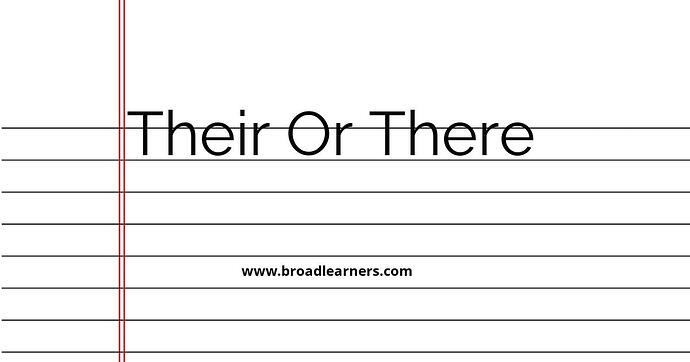'Their' and 'there' are commonly confused words in English grammar. Understanding the difference between 'their' and 'there' is important to use them correctly in written and spoken English.
'Their' is a possessive pronoun that indicates ownership or belonging. It is used to refer to something that belongs to a group of people.
'There' is an adverb that indicates a place or location. It is used to point out or identify a specific location or to introduce a sentence or clause.
Let's take a closer look at the meanings and usage of 'their' and 'there'.
| 'Their' | 'There' |
|---|---|
| The word 'their' is used to indicate possession by a group of people. | The word 'there' is used to indicate a place or location. |
|
|
To remember the difference between 'their' and 'there', it can be helpful to associate 'their' with ownership by a group of people, while 'there' is used to indicate a place or location.
Here are some examples of correct usage:
- Their car is parked in the driveway. (referring to ownership by a group)
- I left my keys over there on the table. (indicating a specific location)
- There are many books on the shelf. (introducing a sentence)
- She wants to go there for her vacation. (referring to a place)
Remembering the correct usage of 'their' and 'there' will improve your grammar and communication skills.
